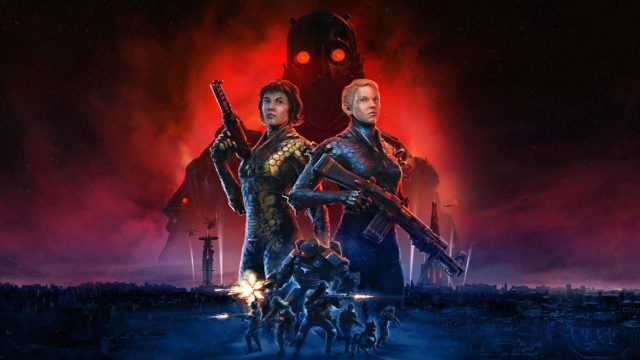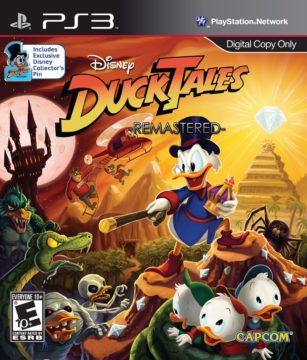I love physical releases. Perhaps I’m just tethered to video games the way I grew up with them, but there’s something special about the feeling of getting a new game, cracking off the shrink-wrap and taking out that cartridge or disc for the very first time. Over the last few years, the number of physical releases has decreased as publishers look to a future that could be digital only. While a strong case can be made for the benefits of all digital, an unfortunate half-measure has popped up in the industry of late: the release of empty plastic cases containing download codes. What started as a funny oddity, however, is becoming a trend that should disturb most gamers.
The trend seemed to kick off last console generation, with Capcom being one of the earliest offenders. When DuckTales Remastered released in 2013, PS3 owners were treated to an exclusive “physical” version at launch. In actuality, what gamers got was a plastic case with a download code and a pin inside. (Later, all three systems got a true physical release.) The publisher has been slightly less egregious since; Switch games like Resident Evil: Revelations Collection and the upcoming Resident Evil Origins Collection at least offer a single game on cartridge with the second game offered as a digital download. Fans still aren’t fond of this practice, but at least the plastic case houses an actual game inside. The same, unfortunately, can’t be said for the upcoming release of Bethesda’s Wolfenstein: Youngblood. Gaming outlets recently discovered that the Switch version will arrive in stores in a physical box that only contains a download code. It’s not the first Switch game to be offered this way, but it’s certainly one of the most high profile releases to be done in this fashion.
In a way, it’s understandable why Bethesda would want to do this. Releasing a physical case in stores helps make casual buyers more aware of their release, which is important with so many games currently available. But the trade-off simply can’t be worth it. After all, plenty of digital exclusive titles sell well on Switch’s eShop. Wolfenstein II: The New Colossus clearly sold well enough for Bethesda to bring another entry in the series to the platform. It’s not unfathomable that Bethesda could build a similar level of awareness by releasing a cardboard download code card, similar to those sold for past digital exclusive titles, such as New Super Luigi U. As a result, potential customers can still buy the game in stores, but the waste is much more eco-friendly.
There are plenty of reasons gamers should be opposed to the sale of empty physical cases. While a lot of gamers love to collect and display their titles, how long will the average collector keep an empty plastic box? Notably, GameStop locations are notorious for throwing out unsold games. As such, it stands to reason that tons of empty game cases will inevitably wind up in landfills and oceans, where plastic is already accumulating at a worrisome rate. That isn’t even taking into consideration the amount of fossil fuel that will be burned hauling these cases to stores, or consumed by players driving to those stores just to purchase a case that doesn’t even contain a game. Seems kind of silly, doesn’t it?

To be clear, my argument is not intended as a denunciation of physical media. As I said at the outset, I love physical media, and I think there are plenty of reasons it should continue to exist and thrive. The publishers of digital media are asking consumers to spend their money on products they’ll never actually own. This trend is not isolated to the video game industry: physical releases in the music industry have become few and far between, and movies are following closely on the same path. However, as licenses lapse and code is eventually lost, there is a legitimate fear to be had that the things we think we own can be erased, or altered beyond our recognition. Many Star Wars fans decried George Lucas’ tampering with the original trilogy and his refusal to keep the unaltered films in circulation. Fans were still, however, able to watch the VHS and DVD releases of those films. The idea of a future where filmmakers and studios could tamper with the digital purchases consumers have made doesn’t seem all that unlikely. In fact, it seems almost inevitable.
As digital media becomes more prolific, publishers are going to have to decide how they cater their releases to the gaming community. While a strong argument can be made in favor of a continued coexistence between physical and digital media, there is no room for half-measures. Gamers right now have an opportunity to vote with their dollar and effect change for the betterment of the environment by demanding publishers bring an end to fake physical releases. It’s the very least we can do.




 ShareThis
ShareThis








